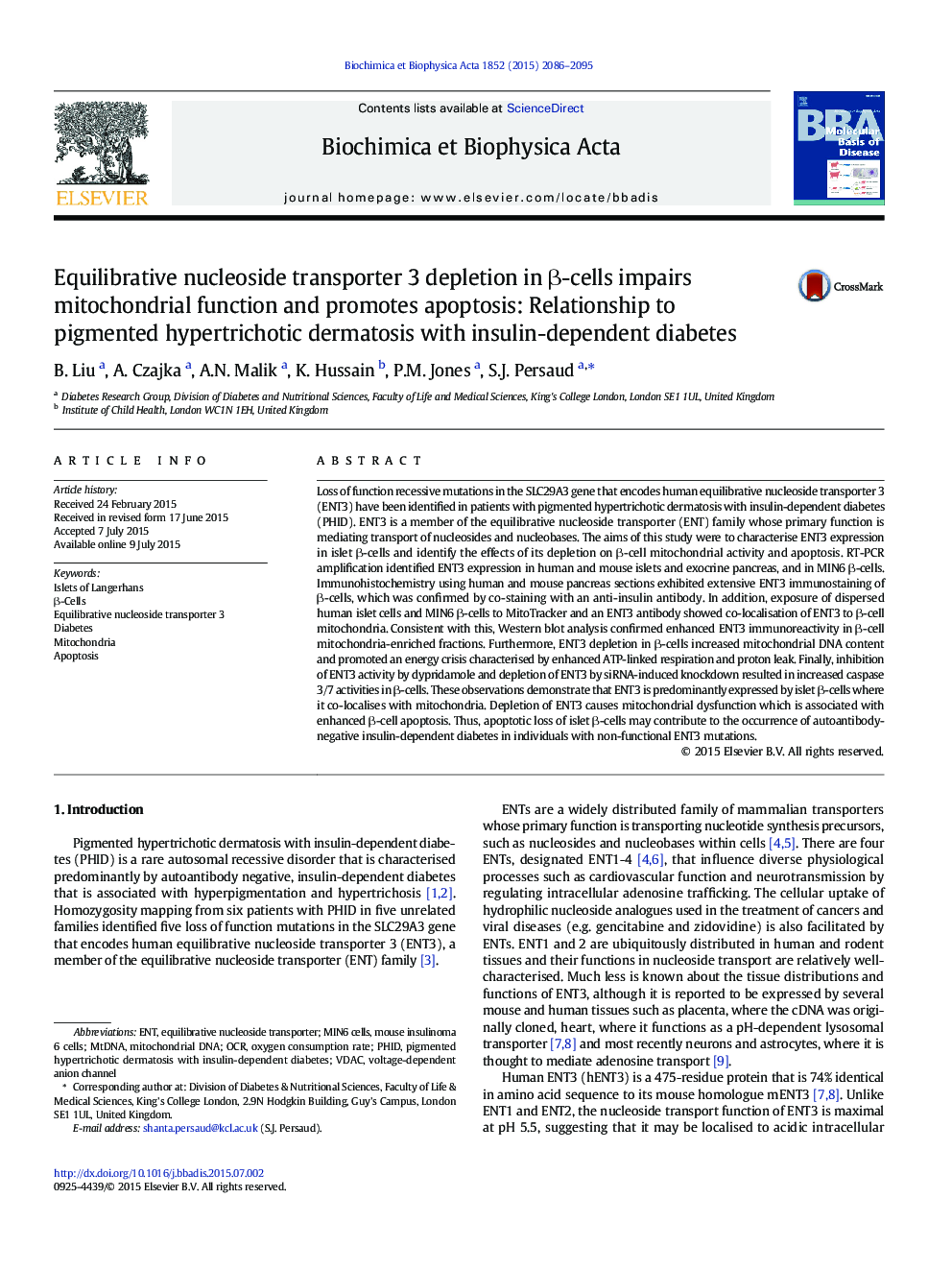| Article ID | Journal | Published Year | Pages | File Type |
|---|---|---|---|---|
| 1904592 | Biochimica et Biophysica Acta (BBA) - Molecular Basis of Disease | 2015 | 10 Pages |
•ENT3 is predominantly expressed by β-cells in islets where it co-localises with mitochondria.•Depletion of β-cell ENT3 increases mitochondrial DNA content.•Depletion of β-cell ENT3 stimulates cellular oxygen consumption.•Depletion of β-cell ENT3 induces susceptibility to apoptosis.•ENT3 plays a pivotal role in β-cell mitochondrial activity and apoptosis.
Loss of function recessive mutations in the SLC29A3 gene that encodes human equilibrative nucleoside transporter 3 (ENT3) have been identified in patients with pigmented hypertrichotic dermatosis with insulin-dependent diabetes (PHID). ENT3 is a member of the equilibrative nucleoside transporter (ENT) family whose primary function is mediating transport of nucleosides and nucleobases. The aims of this study were to characterise ENT3 expression in islet β-cells and identify the effects of its depletion on β-cell mitochondrial activity and apoptosis. RT-PCR amplification identified ENT3 expression in human and mouse islets and exocrine pancreas, and in MIN6 β-cells. Immunohistochemistry using human and mouse pancreas sections exhibited extensive ENT3 immunostaining of β-cells, which was confirmed by co-staining with an anti-insulin antibody. In addition, exposure of dispersed human islet cells and MIN6 β-cells to MitoTracker and an ENT3 antibody showed co-localisation of ENT3 to β-cell mitochondria. Consistent with this, Western blot analysis confirmed enhanced ENT3 immunoreactivity in β-cell mitochondria-enriched fractions. Furthermore, ENT3 depletion in β-cells increased mitochondrial DNA content and promoted an energy crisis characterised by enhanced ATP-linked respiration and proton leak. Finally, inhibition of ENT3 activity by dypridamole and depletion of ENT3 by siRNA-induced knockdown resulted in increased caspase 3/7 activities in β-cells. These observations demonstrate that ENT3 is predominantly expressed by islet β-cells where it co-localises with mitochondria. Depletion of ENT3 causes mitochondrial dysfunction which is associated with enhanced β-cell apoptosis. Thus, apoptotic loss of islet β-cells may contribute to the occurrence of autoantibody-negative insulin-dependent diabetes in individuals with non-functional ENT3 mutations.
